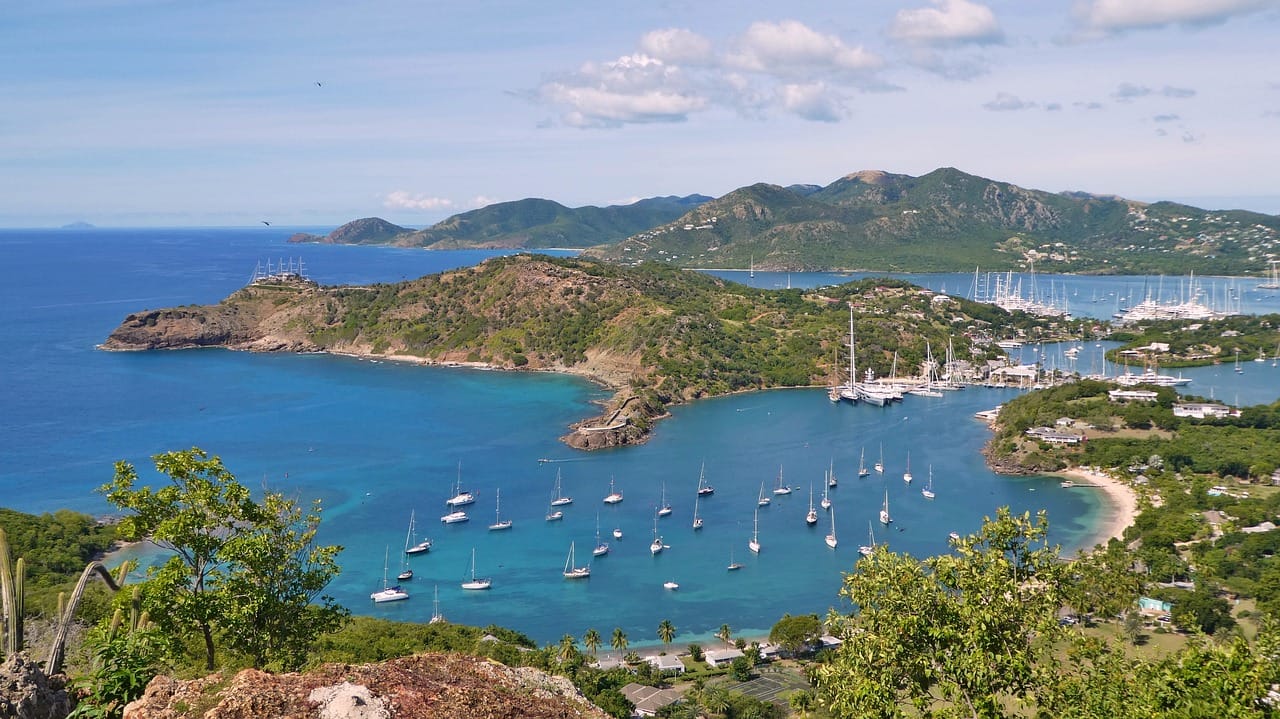
In today’s interconnected world, global citizenship has become more than just a buzzword. Many people are seeking alternative routes to secure a second passport and, by extension, increased global mobility and opportunities. Two popular programs that cater to these aspirations are the Citizenship by Investment (CBI) programs of Antigua and Barbuda and Malta. Let’s dive into the differences that define these two offerings.
Antigua and Barbuda: Caribbean Charm
Nestled in the heart of the Caribbean, Antigua and Barbuda offer a CBI program that’s a blend of simplicity and allure. This twin-island state has sun-soaked beaches, making it a favorite for vacations. But for investors, it’s the relatively lower investment threshold and quick processing times that stand out.
Malta: A European Jewel
Malta, a picturesque archipelago in the Mediterranean, holds its own unique appeal. This European Union (EU) member state offers a CBI program that promises investors a European passport, complete with all its inherent advantages. Think visa-free travel across the Schengen Area and significant business opportunities within the EU.
The Antiguan Route

Antigua and Barbuda provide a range of investment options, including:
- A contribution to the National Development Fund.
- Investment in real estate.
- Business investments.
Each option comes with its own specific criteria and minimum investment amounts. Generally speaking, the financial outlay required for Caribbean citizenship starts at a comparatively lower amount than many other CBI programs around the world.
Malta’s Mediterranean Offer
Malta Citizenship by Investment, termed the ‘Malta Individual Investor Program’ (MIIP), is structured a bit differently. This program requires:
- A non-refundable contribution to the National Development and Social Fund.
- Investment in government-approved financial instruments.
- Property purchase or lease.
It’s worth noting that obtaining Maltese citizenship generally involves a higher financial commitment than Antigua and Barbuda. This can be attributed to Malta’s EU membership status and the associated perks.
Processing Times and Residency Requirements
One of the primary appeals of the Antigua and Barbuda CBI is the speed. Successful applicants and expect their passport within a matter of months. However, it’s essential to remember the residency requirement: new citizens must reside in their country for at least five days within the first five years of obtaining their citizenship.

On the other hand, Malta’s program is more comprehensive and as a result, tends to have a longer processing time. Beyond the financial requirements, there’s also a mandatory 12-month residency period before citizenship is granted. This means that potential citizens will need to plan for an extended stay.
Visa-Free Travel: Opening Doors Worldwide
Holders of an Antiguan and Barbudan passport can enjoy visa-free or visa-on-arrival access to over 150 countries. This includes travel to the UK, the Schengen Area, and several other key destinations.
The Maltese passport, being an EU passport, naturally offers robust travel benefits. Citizens can live, work, and study anywhere in the EU. Plus, visa-free travel extends to over 180 countries, making it one of the world’s most powerful passports.
Cultural and Lifestyle Considerations
For those who dream of a laid-back lifestyle surrounded by pristine beaches, turquoise waters, and a warm Caribbean culture, Antigua and Barbuda is a haven. These islands offer a unique blend of rich history, local festivals, and vibrant music scenes. Daily life here is heavily influenced by the sea, from cuisine to recreational activities. Cricket is the national sport, and is influence is clear. All these elements combine to offer a lifestyle that’s relaxed yet vibrant.
Malta, on the other hand, presents a mesmerizing mix of European and African cultures. With its rich history spanning over 7,000 years, this archipelago boasts prehistoric temples, medieval cities, and a myriad of cultural festivals. While Maltese and English are the official languages, one can hear a blend of Italian, French, and Arabic in daily conversations, reflecting its diverse past. The lifestyle in Malta is Mediterranean at its core – balmy evenings, alfresco dining, and a strong sense of community. It’s a place where traditional and modernity coexist seamlessly.
Economic and Business Opportunities
Beyond its idyllic beaches, Antigua and Barbuda have been making strides in diversifying the economy. While tourism remains a significant driver, there’s growing interest in sectors like finance, technology, and renewable energy. For the entrepreneurial-minded, the government provides incentives for foreign investments in certain sectors, aiming to create a more resilient and diversified economy. This proactive approach spells potential for those looking to invest or start businesses on the island.
For those who are interested in Malta’s program, this island has long been a recognized leading financial hub in the Mediterranean. Its strategic location, robust regulatory framework, and multilingual workforce make it an attractive choice for businesses. Especially significant are the iGaming, fintech, and maritime sectors. With a sound legal system and policies that encourage foreign investments, Malta has built an environment where businesses, both local and international, can thrive.
Choosing between Antigua and Barbuda or Malta for a Citizenship by Investment program comes down to individual preferences, budget, and long-term goals. Both programs have their strengths, and it’s worth consulting with immigration experts to make an informed decision.
Advertise with the mоѕt vіѕіtеd nеwѕ ѕіtе іn Antigua!
We offer fully customizable and flexible digital marketing packages.
Contact us at [email protected]
















The differences of substance is the Antigua and Barbuda CIP enables foreign gangsters, excons and those on Wanted lists to become citizens.
Like the Africans they see Antigua as a way station. Many CIPs are using Antigua and Barbuda as a back door to Europe.
This is a Caribbean, issue not just Antigua and Barbuda.
A region clinging to outdated colonial policies, failing to educate its people to compete in the world markets, and now dependent on watered down CIP programs to help pay the debts they have incurred.
The real difference is Malta is not being chocked in debt, with no way out.
Comments are closed.